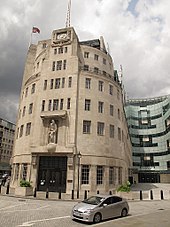‘Plague’ On sale now £9.99
Tags
Follow J.J.Anderson on Facebook
Follow J.J.Anderson on Pinterest
Archives
-
Recent Posts
Categories
http://www.thestorybazaar.com/rss.xml
Social
-
Privacy & Cookies: This site uses cookies. By continuing to use this website, you agree to their use.
To find out more, including how to control cookies, see here: Cookie Policy
A feast for the imagination


 RSS – Posts
RSS – Posts
What’s happened to BBC News?
Away from the UK earlier this month I was dependant for UK news in English upon social media, print and friends. So, on one hand I was getting only the UK news I wanted to hear – my Twitter feed only includes stories it thinks I would be interested in, my friends have, fundamentally, the same values and views as me (though I can’t understand why intelligent people watch Love Island). On the other the only newspapers available to me were ones which I don’t normally read (given that The Guardian doesn’t publish abroad any more) like The Times and Telegraph. It’s always instructive, if bad for one’s blood pressure.
the UK news I wanted to hear – my Twitter feed only includes stories it thinks I would be interested in, my friends have, fundamentally, the same values and views as me (though I can’t understand why intelligent people watch Love Island). On the other the only newspapers available to me were ones which I don’t normally read (given that The Guardian doesn’t publish abroad any more) like The Times and Telegraph. It’s always instructive, if bad for one’s blood pressure.
Even when in London I don’t watch that much TV, but I do watch the news and I miss it when away. Spanish TV has news, even rolling news (24hr) and it’s informative but it doesn’t often relate to Britain. So one of the joys of returning to London is to have the BBC once more. Except….. I find that watching or listening to BBC news output is now both infuriating and saddening.
Except….. The Corporation’s standard of reporting has been more and more suspect of late. Its non-reporting even more so. Just to give a few quick examples (because this isn’t what this blog post is about), the acceptance of opinion as fact, when it is just opinion; the lack of challenge to views expressed, often leading to those opinions being treated as ‘correct’ or ‘established’ views when they are not; giving equal weight to opinions which vary hugely in terms of being informed and evidence based; the bullying of individuals; the ‘spin’ against uncomfortable facts; the chase for ‘drama’ in debate, as opposed to reason; the, astonishing, choice not to report news items, like major political protests (from both right and left, the old divisions and Leave and Remain, the new).
opposed to reason; the, astonishing, choice not to report news items, like major political protests (from both right and left, the old divisions and Leave and Remain, the new).
I can give specific examples of all of the above, but what I want to know is, why is this happening and how has it come about?
By how, I mean not just the external drivers, but inside the BBC. Has senior management issued a dictat which, directly, or inadvertently, has led to where we are? Are individual journalists just allowed to be sloppy (and does this have anything to do with the changing employment status of many former employees, i.e. they are more easily blamed and/or controlled)? Or are they scared of sticking their necks out or of attracting the attention of some of the Corporation’s enemies? Is the internal culture becoming one of ‘running scared’ rather than tackling difficult issues?
Yesterday Jo Maugham QC of the Good Law Project posted a thread on Twitter about the BBC @JolyonMaugham. It was the Good Law Project’s seeking of judicial review which led to the Electoral Commission reopening its investigation into Vote Leave’s breaking of electoral law (although the BBC’s reporting was about breaking ‘the rules’, rather than the law). He reported a conversation with a senior BBC political journalist (with the journalist’s permission) in which this person admits that ‘This thing is so big that there is a fear among certain editors as being seen as remainers.’ Other former journalists and commentators have piled in, saying that this was what they were being told too. Today Rob Burley, Editor Andrew Marr Show and Deputy Editor Live Political Programmes has engaged in the debate.
seeking of judicial review which led to the Electoral Commission reopening its investigation into Vote Leave’s breaking of electoral law (although the BBC’s reporting was about breaking ‘the rules’, rather than the law). He reported a conversation with a senior BBC political journalist (with the journalist’s permission) in which this person admits that ‘This thing is so big that there is a fear among certain editors as being seen as remainers.’ Other former journalists and commentators have piled in, saying that this was what they were being told too. Today Rob Burley, Editor Andrew Marr Show and Deputy Editor Live Political Programmes has engaged in the debate.
So the right-wing media and the government may have, it seems, combined to frighten the BBC into submission, though Rob Burley would have it otherwise. The sad element of all this is that the BBC would be colluding in its own downfall, the people it allies itself with would happily see it destroyed and its usual supporters are being alienated by it. Not a good long-term strategy.
For more on he Referendum and its after math, going back two years, try The Weekend After Britain is Free! The Demagogue’s Handbook The Demagogue’s Dictionary Another Public Vote?
Share this:
Posted on 23rd June 2018 by juliej Leave a comment
This entry was posted in Political comment, Words and tagged Political comment, Words. Bookmark the permalink.